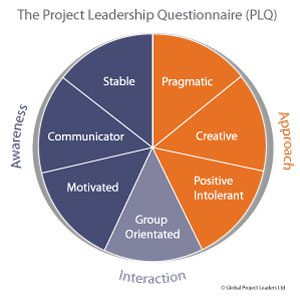Introduction
Starting a project management role can involve a change in career. You might have started out in a more technical or specialised role and progressed up the chain or moved into project management after gaining skills in another industry. Early on in your project management career, you might find gaps in your knowledge, or skills that you need to improve on. It is also important not to underestimate the skills that you already have. A skills analysis can help us to identify our skills and gaps in our knowledge, and work out how to fill any gaps that we find.
Identifying existing skills
Whilst it is important to have a focus on improvement and growing your skills, take the time to acknowledge and understand the skills that you do have.
You could simply list all the skills that you have, but this can feel challenging if you feel that your experience is very specific or focused on a particular industry. In this case, you might like to use the following headings to help guide your skills analysis:
- Communication
- Teamwork
- Leadership
- Specialist
These are not prescriptive headings – you can add others – but the intention is to think about your specific skills under more general headings. You want to consider both your general and specialist skills – specialist skills and experience are your points of difference. Don’t be afraid to highlight them, especially if they have transferable elements that you can apply to any project.
For example, under communication you might list client communication, communication with a number of stakeholders and digital communication using newsletters and an update dashboard. These are all skills specific to you and they demonstrate a range of communication experience.
Identify the gaps
One way of identifying the gaps in your project management knowledge is to do a SWOT analysis. For SWOT analysis examples, you can consider assessing past projects, competitors’ strategies, or industry trends. Using this activity in this way was introduced to me by a mentor and I found it a helpful exercise. It is a useful way of understanding your personal strengths, weaknesses, opportunities and threats. By carrying out a SWOT analysis, you can better understand the gaps in your knowledge and how you can go about filling them.
Let’s briefly break down how to consider each of these elements in the context of a skills analysis:
- Strengths: What skills do you already have? What areas of experience do you bring to the team? Think about the things that you can do and are capable of. We often shy away from acknowledging skills that we do have. This is your opportunity to write them down and recognise their value.
- Weaknesses: What experience are you lacking? What areas would you like to improve on? Although this is labelled weaknesses, it is important not to think about this too negatively. Frame it as the areas where you want to improve. Acknowledging the gaps in your knowledge shows a willingness for improvement and a keen interest in progressing your career and experience. Do also think about your interests. If you have an interest in risk management or resource planning, add that as an area to explore further.
- Opportunities: What opportunities are available to you? Here, you can think about things like training grants (perhaps from your employer or a professional body), internal secondment opportunities or time given for pursuing additional skills. Any of these things can help you move forward and increase your skills base. Think about what opportunities are on offer and how you can use them to your benefit.
- Threats: What are the threats to your position or future plans? Again, don’t be too pessimistic here. You might want to think about technology changes that might impact you or the volatility of your field of work. As with thinking about weaknesses, think about threats through the lens of challenges that you will need to overcome. This proactive approach will encourage you to think carefully about the environment you are working in and how you can work within it.
You can complete a SWOT analysis on two levels:
- Current role
- Overall skills
When thinking about your current role, consider the things you bring to the role and can do well, and think about things that you need some help with. This will allow you to succeed in your current role and demonstrate to your employer that you are enthusiastic and keen to learn and develop.
Thinking about overall skills requires a more holistic view of your career. Where do you want to be in 3/5/10 years’ time? Is there an area outside of your current role that interests you but is beyond the scope of this role? Do you have a specific goal in mind but need to plan the steps to get there? Here, the SWOT analysis can help you to understand where you are and, as you have a specific long-term goal in mind, what skills you can improve on long-term.
Once you have completed your SWOT analyses, you will have a better understanding of what skills you want to work on, and the skills that you already possess.
Carrying out an assessment to identify the gaps in our knowledge is a useful exercise. Whilst we could simply make a list and work through it, that can be quite a prescriptive exercise. Focusing on our individual traits and situation and how we can build on those is a more useful exercise for the individual project manager. It can also help give you focus and direction about where to take your career and experience next.
Plan to fill them
Now that we understand what the gaps are, we can plan to fill them. There are a number of ways in which you can approach this, but it can be helpful to start by breaking down the gaps into three categories:
- Skills are specific areas of expertise or understanding that you need to improve on. This would be things like communicating with stakeholders or completing a risk register.
- Experience is undertaking a role either temporarily or permanently that allows you to apply multiple skills and builds your wider knowledge of the industry.
- Qualifications are formally recognised qualifications that will enhance your career.
Once you have broken these down, you can return to your SWOT analysis and assign each area that you’ve recognised to one of these categories. Below is a brief example of how to assess each area.
- Strengths: If one of your strengths is that you hold the APM PMQ or Prince2 Practitioner qualification, then you might say that you are happy with your current status of qualifications, or plan to do another, but in the long term.
- Weaknesses: If one of your weaknesses is that you have never completed a risk register, then you might flag that as a skill that you would like to improve in the short term and can raise that with your line manager or mentor.
- Opportunities: If an opportunity available to you is that your employer offers short internal secondments, take advantage of them. It will allow you to develop your experience in a new area and understand more of the business.
- Threats: If a threat to your career is rapidly changing technology, take advantage of short courses to develop IT skills or subscribe to a magazine or newsletter that will keep you up to date with the current technological developments in your area.
Next steps
The final step is to put the results of your skills analysis into action.
You might need to undertake some research yourself to see how feasible your requirements are. If you want to undertake a qualification, can your employer support you or do you need to fund that yourself? If you have found a gap in your skillset, is that something you can fill within your current role, or do you need to ask for opportunities across other departments?
A helpful first step can be to speak to your line manager, a mentor or a colleague to get some advice on how to tackle your gaps. More senior professionals will have a wealth of experience and are usually happy to give you advice and help on developing your skills and experience.
Final thoughts
One of the best things you can do for your career is to take proactive action towards finding and filling gaps and a skills analysis is an effective way of doing that. By identifying these gaps, you will be aware of what they are and be able to seek opportunities to fill them. It will allow you to enhance your career opportunities and give you a roadmap of areas that you can work on to improve your knowledge and experience in the project management world. It is also a good opportunity to think about your existing strengths, as well as your career and where you want to go in future. And don’t be afraid to revisit this exercise. As you progress through your career you will gain more skills and experience and your interests and goals will change.



